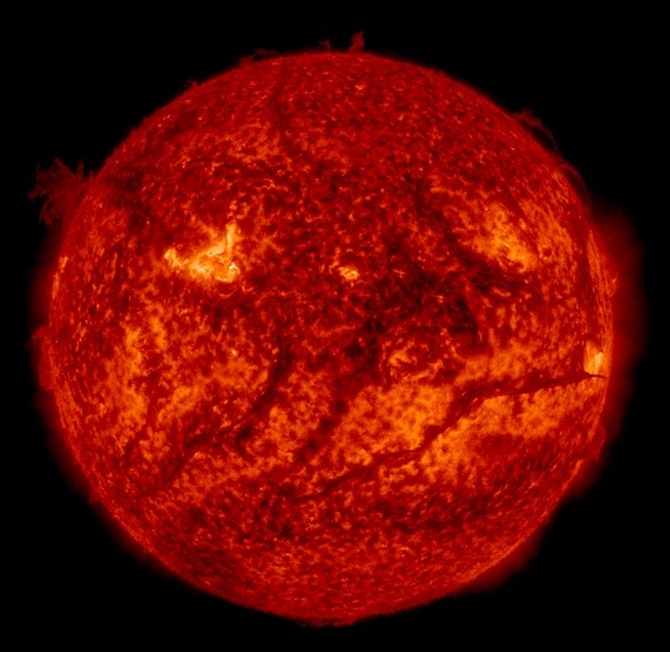After the successful moon lander venture, ISRO is now gearing up for the launch of a solar mission in a week's time, likely on September 2, to study the Sun.
Aditya-L1 spacecraft is designed for providing remote observations of the solar corona and in situ observations of the solar wind at L1 (Sun-Earth Lagrangian point), which is about 1.5 million kilometres from the earth.
It will be the first dedicated Indian space mission for observations of the Sun to be launched by the Bengaluru-headquartered space agency.
The Aditya-L1 mission, aimed at studying the Sun from an orbit around the L1, would carry seven payloads to observe the photosphere, chromosphere and the outermost layers of the Sun, the corona, in different wavebands.
Aditya-L1 is a fully indigenous effort with the participation of national institutions, an ISRO official said.
The Bengaluru-based Indian Institute of Astrophysics (IIA) is the lead institute for the development of Visible Emission Line Coronagraph payload. While Inter-University Centre for Astronomy and Astrophysics, Pune, has developed the Solar Ultraviolet Imager payload for the mission.
Aditya-L1 can provide observations on the corona, and on the solar Chromosphere using the UV payload and on the flares using the X-ray payloads. The particle detectors and the magnetometer payload can provide information on charged particles and the magnetic field reaching the halo orbit around L1.
The satellite, realised at U R Rao Satellite Centre here, arrived at the ISRO's spaceport of Sriharikota in Andhra Pradesh, two weeks ago.
"Most likely the launch will take place on September 2 ", an ISRO official said.
The spacecraft is planned to be placed in a halo orbit around the L1 of the Sun-Earth system.
A satellite placed in the halo orbit around the L1 point has the major advantage of continuously viewing the Sun without any occultation/eclipses, ISRO noted.
"This will provide a greater advantage of observing the solar activities and its effect on space weather in real time," it said. -- PTI
